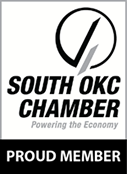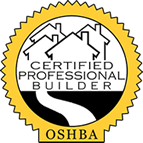Dub Stone Construction: Legacy, Strengths, and Strategic Path Forward
August 5, 2025Company Overview & Heritage
Dub Stone Construction, headquartered at 15800 South Western Ave, Oklahoma City, Oklahoma, stands as one of the region’s most established residential builders. Founded in 1959 by W.C. “Dub” Stone, the company has remained steadfast in its mission: to provide quality, affordable homes for families throughout the state. What began as a modest, values-driven enterprise has grown into a recognized name across South Oklahoma City and surrounding communities. For over six decades, this business has represented more than just construction—it embodies family heritage, local commitment, and craftsmanship deeply rooted in trust.

As of 2025, Dub Stone Construction remains a family-owned and operated business, now under the leadership of Todd Stone, who serves as President and CEO. Todd has embraced his father’s legacy not only by preserving the company’s foundational values but also by navigating it through modern construction expectations. The generational leadership provides a consistent vision and culture, ensuring that every home built still reflects the personal pride and care instilled by its founder.
From its inception, the company’s commitment to personalized service, high construction standards, and honest pricing has earned it a reputation that few others can claim in the region. Dub Stone Construction operates as a Limited Liability Company (LLC), offering a suite of services that includes new home construction, custom residential projects, site development, flooring, home additions, and detailed floor planning. These offerings allow for a highly flexible, tailored approach that stands in contrast to the “cookie-cutter” methods employed by larger developers.
Company Structure, Relationships, and Services
At the heart of Dub Stone Construction is a tight-knit set of relationships that spans family, business partners, subcontractors, and customers. The founder’s ethos is still very much alive in the day-to-day business operations, manifesting through customer interactions, building practices, and employee culture. Todd Stone’s leadership isn’t just administrative—it’s deeply personal. He maintains a hands-on approach in project oversight, contractor engagement, and customer relations, reflecting the enduring spirit of accountability and dedication first introduced by his father.
Operating as an LLC provides the company with a blend of operational flexibility and legal protections, making it ideal for a medium-sized builder navigating both custom builds and broader residential developments. The business is affiliated with regional industry bodies such as the Oklahoma State Home Builders Association and the Central Oklahoma Home Builders Association. These affiliations provide ongoing access to training, updates in building codes, and a professional network of suppliers and contractors.
Although Dub Stone Construction is not currently accredited by the Better Business Bureau (BBB), it holds certifications as a Certified Professional Builder—a designation that recognizes commitment to ethical business practices, quality standards, and continuous improvement. Their decision not to pursue BBB accreditation may reflect a focus on in-field reputation over digital certifications, but this also presents a possible avenue for improvement.
When it comes to services, Dub Stone Construction is recognized for its high-touch, client-focused custom home offerings. Their design-build process allows clients to participate from conception through to construction completion, ensuring each home is a collaborative creation. This participatory model provides a deep level of transparency and trust, and reflects the family-owned nature of the business. Each home includes a standard 1-year builder warranty, and significantly, a 10-year third-party RWC (Residential Warranty Corporation) warranty. This long-term assurance adds an additional layer of confidence for homeowners, setting Dub Stone apart in a crowded market.
Energy efficiency also plays a central role in the company’s builds. Incorporating energy-saving features as standard—rather than costly upgrades—aligns the firm with sustainable construction trends while offering homeowners meaningful long-term savings. Combined with the warranties and personal design attention, these features contribute to an overall value proposition that is both customer-centric and future-facing.
Geographic Presence and Market Reach
Dub Stone Construction primarily serves the Oklahoma City area, with significant visibility in surrounding communities such as Newcastle and Norman. Its base in South Oklahoma City provides strategic access to both urban and suburban clienteles, balancing custom home requests with larger development projects in emerging neighborhoods.
This regional focus has enabled the company to build long-term relationships with local suppliers, city planners, and trade partners. These relationships provide advantages not only in cost efficiency but also in consistency and reliability—key attributes in custom homebuilding where timelines and quality control are critical.
The company is widely regarded as one of the more reputable legacy builders in the South Oklahoma metro. Its name often comes up in regional word-of-mouth referrals, local real estate networks, and community circles. However, visibility outside these close-knit networks is limited. As the residential construction market continues to become more digitally competitive, Dub Stone Construction’s strong local presence must be leveraged more assertively in online platforms.
Key Stakeholders and Organizational Dynamics
The most direct stakeholders in the Dub Stone ecosystem are its customers—primarily families looking for new or custom-built homes within Oklahoma. These clients typically value personalized service, trust in craftsmanship, and transparency—areas in which Dub Stone excels.
Beyond clients, the company’s ecosystem includes subcontractors, suppliers, industry associations, warranty providers, and local regulatory bodies. The subcontractor network is particularly critical to quality assurance, and Dub Stone’s tendency to reuse trusted local partners fosters project consistency and clear communication.
Internally, the workforce appears to consist of a small, long-standing team supported by an extended network of subcontractors. Though specific employee data is unavailable, the company’s smooth execution and consistent project delivery suggest a well-managed and stable internal culture. Mentorship and legacy-building likely play strong roles in employee retention and morale.
Community partnerships, while not aggressively advertised, are evident through the company’s consistent presence in regional projects and its longstanding tenure in the market. These partnerships likely extend to real estate agents, developers, and civic organizations who view the business as a reliable, grounded homebuilder with a solid track record.
Competitive Strengths and Strategic Positioning
Dub Stone Construction’s greatest competitive strength is its longevity. With over 65 years of continuous operation, the brand carries a level of credibility and trust that cannot be replicated by newer firms. The founder’s legacy and the continued family ownership enhance the sense of stability, accountability, and personalized service that clients increasingly look for—especially in the custom building segment.
The company’s full-service design-build model is another critical differentiator. Unlike volume builders that offer fixed plans, Dub Stone embraces a flexible, collaborative design process that puts the homeowner at the center of decision-making. This allows for homes that reflect unique lifestyles, aesthetic preferences, and long-term family needs—qualities often lacking in large-scale developments.
A significant value driver for the company is its warranty package. The standard 1-year builder warranty is complemented by a 10-year RWC warranty—a powerful differentiator that communicates long-term quality and accountability. While many builders rely solely on state-mandated warranty structures, Dub Stone’s decision to align with RWC reflects an intentional focus on homeowner peace of mind.
Energy efficiency adds another layer of differentiation. The inclusion of energy-saving features as standard rather than as optional extras aligns with current consumer expectations while also enhancing resale value and homeowner satisfaction.
Lastly, the company’s community ties and consistent supplier relationships offer real operational advantages. By cultivating repeat partnerships with local trades and vendors, Dub Stone ensures smoother scheduling, more favorable pricing, and stronger on-site accountability—factors that contribute to a higher-quality final product.
Challenges and Areas of Risk
Despite its many strengths, Dub Stone Construction faces several challenges that could hinder future growth or competitive agility.
The most prominent is the lack of BBB accreditation and a formal online reputation strategy. In today’s digital-first environment, prospective clients often search for independent verification before reaching out. Without a visible BBB rating or a strong set of reviews across Google, Yelp, or Houzz, Dub Stone risks being perceived as less credible—particularly by younger, first-time homebuyers who are unfamiliar with the brand’s legacy.
The company’s website, while functional, appears somewhat dated. Mentions of a site update in 2018 suggest that major digital enhancements may be overdue. In an industry increasingly reliant on immersive digital experiences—such as 3D floor plans, virtual tours, and online cost estimators—Dub Stone’s current digital assets may limit its appeal to tech-savvy prospects.
Additionally, the absence of clear business metrics—such as the number of homes built per year, size of staff, or annual volume—can make the company seem smaller or less active than it is. In an industry where perceived scale can influence trust and contract size, greater transparency around performance could help combat misconceptions.
Customer reviews are also sparse. While there are some positive mentions on platforms like Qdexx and The Blue Book, they are limited in quantity and depth. Without a coordinated review acquisition strategy, the company’s online trust signals remain underdeveloped.
Finally, the company’s local focus—while beneficial in terms of trust and reputation—may also pose a risk if market dynamics shift. Expanding into adjacent cities or diversifying offerings may become necessary to sustain growth.
Strategic Growth Opportunities
To address these challenges and unlock further growth, Dub Stone Construction can pursue several strategic initiatives.
One of the most immediate opportunities lies in digital reputation building. By claiming and optimizing business profiles across key platforms—such as Google My Business, Yelp, Houzz, and the Better Business Bureau—the company can cultivate a more authoritative online presence. Encouraging recent clients to leave thoughtful reviews and sharing completed project galleries will go a long way in improving discoverability and credibility.
Pursuing BBB accreditation would provide an additional layer of trust, especially among clients who consider external validation a key decision factor. While the process involves fees and paperwork, the long-term payoff in terms of trust and lead conversion could be significant.
Revamping the website should also be a high priority
. A modern, mobile-friendly site with interactive features—such as floor plan viewers, video testimonials, warranty education, and neighborhood guides—would better engage users and reflect the company’s professionalism. Content marketing could further extend reach: blog posts, FAQs, and educational resources about Oklahoma real estate trends, energy efficiency, and financing options could drive organic traffic and establish Dub Stone as a local authority.
The company may also consider expanding its product packaging. Offering pre-designed plan tiers (starter, mid-range, and luxury) alongside the custom model could attract a broader client base while improving operational efficiency. These plans could still allow for customization, preserving the brand’s personalized feel.
Sustainability upgrades represent another opportunity. Marketing homes as “solar-ready” or offering green building packages (recycled materials, advanced HVAC, sustainable flooring) would appeal to modern, eco-conscious buyers.
In the warranty space, Dub Stone can better highlight its advantages by publishing comparisons with other builders, creating explainer videos, and offering free post-occupancy inspections. These steps would demystify the warranty value and turn a back-end feature into a front-line selling point.
On the community side, increased visibility through home shows, local sponsorships, or collaborative builds with regional organizations could enhance brand exposure. Documenting client stories—before-and-after photos, testimonials, family interviews—would create emotional engagement and position the company as a trusted neighbor, not just a builder.
Operational Insights and Internal Best Practices
Internally, Dub Stone Construction appears to manage operations with a clear sense of structure and quality control. The use of BuilderTREND software (as referenced on their website) provides a strong platform for client engagement, document management, scheduling, and financial tracking. These systems offer transparency and ensure that clients are kept informed at every stage of the build.
Project management best practices—such as milestone meetings, site walkthroughs, and staged payment checkpoints—are essential for managing expectations and ensuring alignment. These practices are particularly valuable in custom projects, where client inputs are constant and varied.
Quality assurance is maintained through standardized checklists and close coordination with subcontractors. Focusing on local, repeat subcontractors ensures accountability, efficient workflows, and mutual trust. This method helps avoid the pitfalls of high-turnover labor and ensures consistent build quality.
The warranty service process appears well-structured, with scheduled inspections, client handbooks, and centralized tracking for post-build issues. This approach not only improves service but feeds back into future construction decisions, allowing the company to refine its practices.
Culture-wise, the business likely relies on mentorship and internal storytelling to pass on its core values. This should be formalized and celebrated, particularly as younger employees join. Highlighting the legacy of Dub Stone as part of the employee onboarding experience can help preserve the company’s culture well into the future.
Conclusion and Strategic Summary
Dub Stone Construction stands on the strength of its legacy, its commitment to quality, and its reputation for personalized service. For over 65 years, the company has built homes that serve Oklahoma families—and done so with pride, consistency, and deep local ties.
Yet, the construction landscape is evolving. To stay ahead, the company must enhance its digital footprint, strengthen its online reputation, and make its operational excellence more visible to prospective clients. Strategic investments in web presence, customer reviews, product diversification, and sustainability messaging will help Dub Stone connect with a broader, modern market.
The core values—integrity, craftsmanship, and family—are timeless. With thoughtful modernization and community engagement, Dub Stone Construction is well positioned not just to endure, but to lead.
ADDRESS:
15800 South Western Ave. Oklahoma City, OK 73170
PHONE:
405.691.4444





